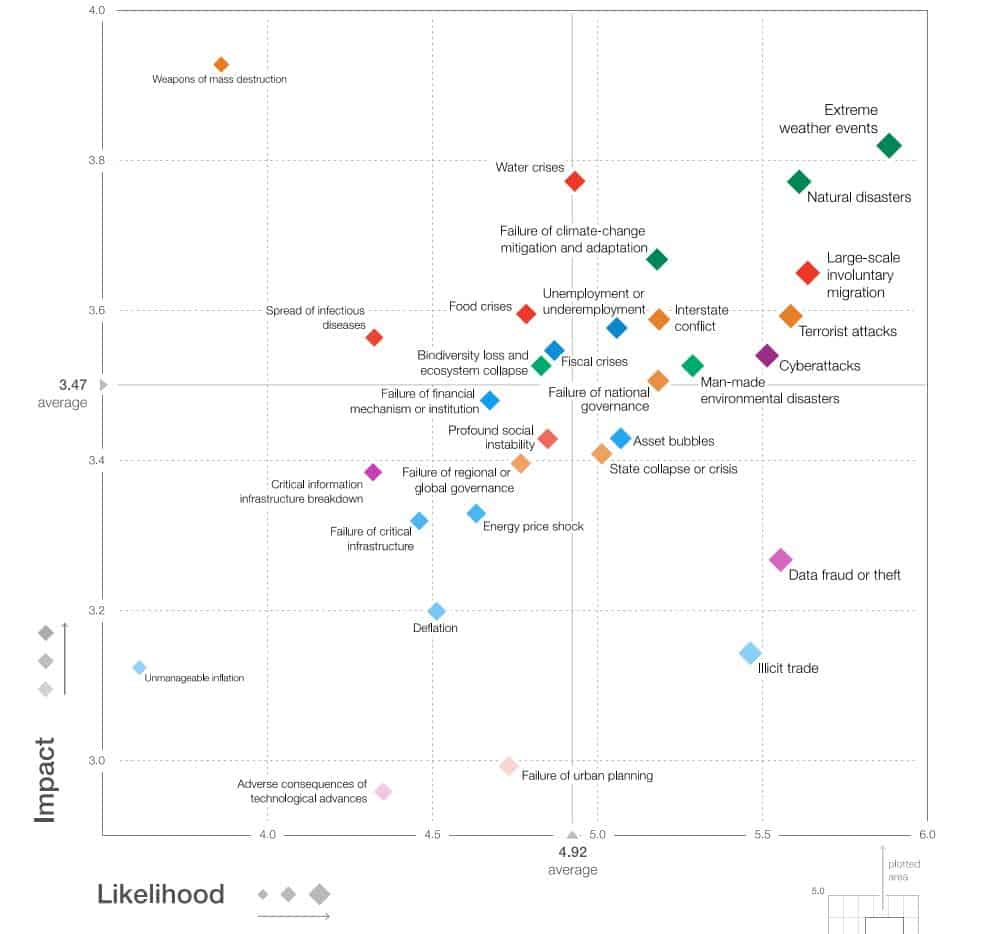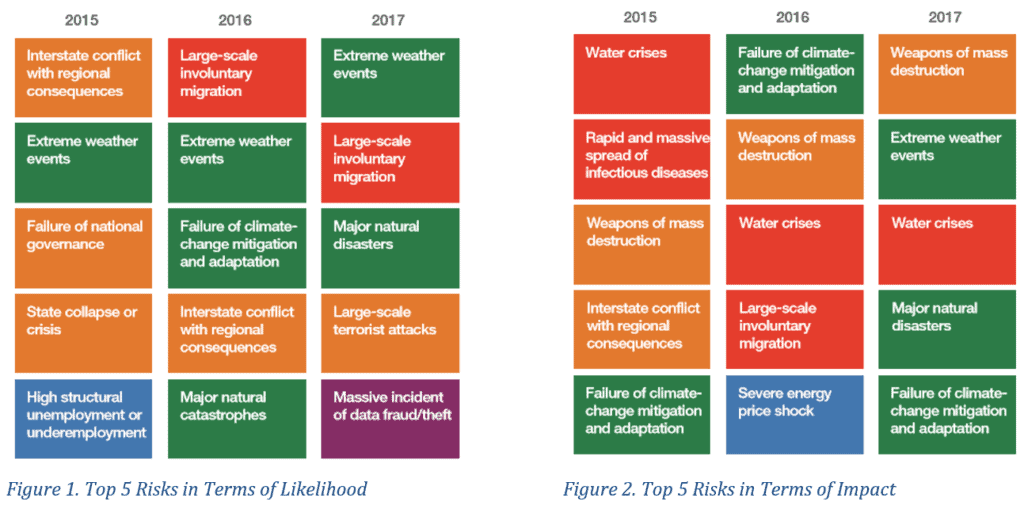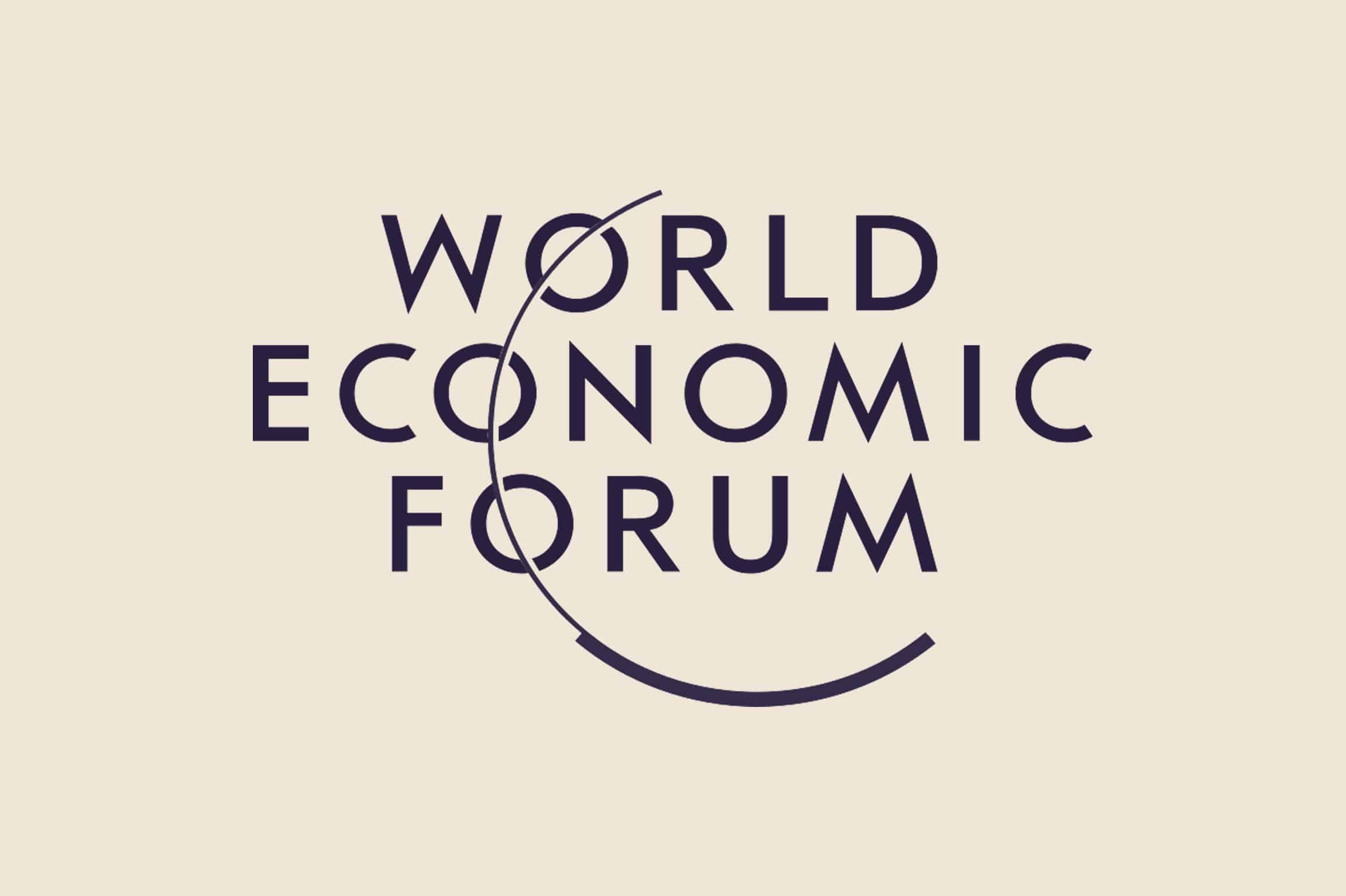The latest Global Risks Report highlights climate-related concerns as some of the more notable risks for 2017.
In the 12th edition of the Global Risks Report, the World Economic Forum stated that risks from the environment category, including extreme weather events, failure of climate change mitigation and adaptation and natural disasters are “more prominent than ever” with linkages to other important risks such as conflict and migration. The Forum considered the likelihood and impact of all risks in the environmental category to be above average.

In 2010, there were no environmental risks in the top 5 most likely and most impactful risks. In 2015 there was one environmental risk in each the likelihood and impact landscapes. In 2017, 5/10 risks are environmental, and almost the top 5 risks with both highest likelihood and potential impact have an overlay of climate change (including large scale involuntary migration and water crises).

The report acknowledged that – especially in this time of political uncertainty – the world is in a period of transition, one transition being the shift towards a low-carbon future. This includes the progress made over the past year to address climate-related concerns such as ratification of Paris Agreement, developments to limit the growth of aviation emissions and hydrofluorocarbons, and global investments in renewable energy capacity reaching US$266 billion in 2015. Furthermore, renewable energy generation capacity now exceeds that of coal, and greenhouse gas emissions have been de-coupled from economic growth for two years.
However, the Forum warned of increasing concerns related to climate change despite this progress. Risks are broad ranging: from the impacts of increased greenhouse gas emissions to the impacts of emission reduction commitments necessary to limit the warming to no more than 2°C, to the increasing legal actions related to climate change and the increasing impacts of a warming climate. The Forum called for further action and emphasized that environment related challenges would require global collective action that includes a diverse set of actors and should take a systemic view.
Environmental issues were found to be interconnected with each other as well as with societal and geopolitical risks. The Global Risk Preparedness Survey (GRPS) found that environmental risks held four of the top ten risk interconnections in this year’s survey; with “water crisis” and “failure of climate change mitigation and adaptation” being the most cited pairing. The report also implicates changing weather patterns or water crises with causing or exacerbating “domestic or regional conflict and involuntary migration, particularly in geopolitically fragile areas.” Due to their interconnectedness, managing these risks will require long-term thinking, investment, and international cooperation. The report concludes by saying “this is a time for all stakeholders to recognize the role they can play by exercising responsible and responsive leadership on global risks.” Nowhere is this truer than in the fight against climate change.

